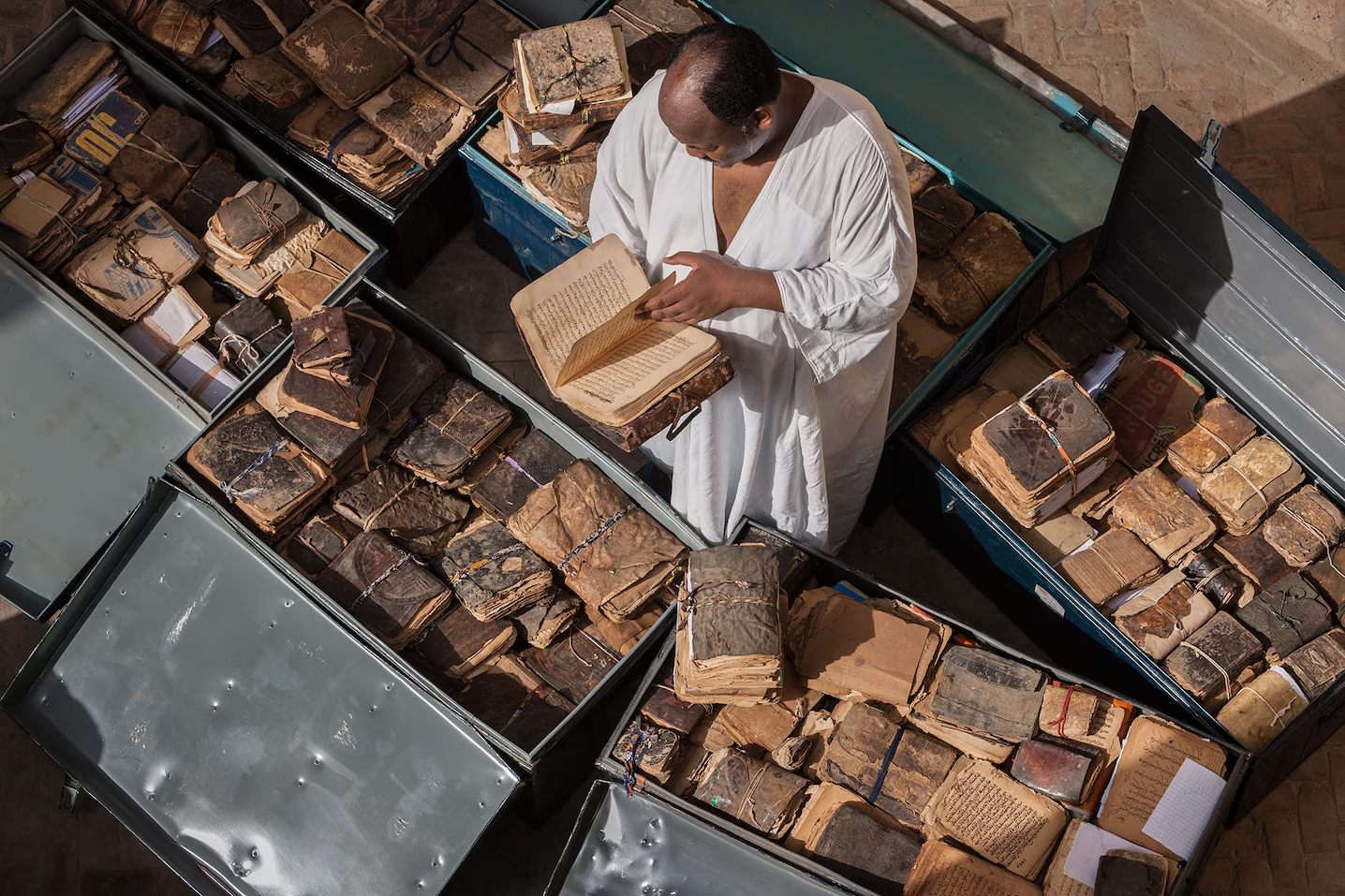
Africa is home to some of the world’s oldest and most significant libraries, holding a treasure trove of ancient manuscripts that provide a window into the continent’s rich intellectual history. Among the most renowned of these collections are the ancient libraries of Timbuktu, Mali. These repositories contain centuries-old texts that cover a wide array of subjects, written in both Arabic and indigenous African languages, reflecting the scholarly prowess of historical African societies.
A Historical Hub of Learning
Timbuktu, situated on the southern edge of the Sahara Desert, rose to prominence between the 12th and 15th centuries as a key center of trade and learning. The city’s strategic position made it a melting pot of cultures and ideas, attracting scholars from across the Islamic world and beyond. The manuscripts found in Timbuktu’s libraries are testament to this era, encompassing works on theology, astronomy, medicine, mathematics, and law, among other disciplines.
Manuscripts as Cultural Treasures
The collections in Timbuktu are not only remarkable for their content but also for their sheer volume. It is estimated that tens of thousands of manuscripts have been preserved, many of which are still housed in private family libraries and institutions such as the Ahmed Baba Institute. These manuscripts, written in Arabic and local languages such as Songhay and Tamasheq, offer insights into the scientific, cultural, and religious life of the time.
Preservation Efforts and Challenges
In recent years, the preservation of Timbuktu’s manuscripts has faced significant challenges. The political instability in Mali, particularly the occupation of Timbuktu by militant groups in 2012, posed a severe threat to these invaluable documents. However, a concerted effort by local custodians, international organizations, and scholars helped to save many manuscripts from destruction. Thousands were secretly transported to safety in Bamako, the capital of Mali, where they continue to be conserved and studied.
Global Recognition and Support
The global academic community recognizes the importance of Timbuktu’s manuscripts. Initiatives for digitization and preservation have been supported by various international entities, ensuring that these texts remain accessible for future generations. The United Nations Educational, Scientific and Cultural Organization (UNESCO) has also highlighted the significance of these manuscripts in understanding Africa’s contribution to global knowledge.
A Living Legacy
The ancient libraries of Timbuktu are more than historical artifacts; they represent a living legacy of Africa’s scholarly and cultural heritage. The continued efforts to preserve, study, and disseminate these manuscripts underscore the importance of protecting our global intellectual heritage. As scholars delve deeper into these texts, they uncover not only the history of Timbuktu but also the broader narratives of African innovation and intellect that have shaped our world.
The ancient libraries of Timbuktu stand as a testament to the rich intellectual traditions of Africa. They remind us of the continent’s historical role as a center of knowledge and learning. Preserving these manuscripts is crucial, not just for Africa, but for the entire world, as they hold keys to understanding the development of human thought and culture through the ages.
